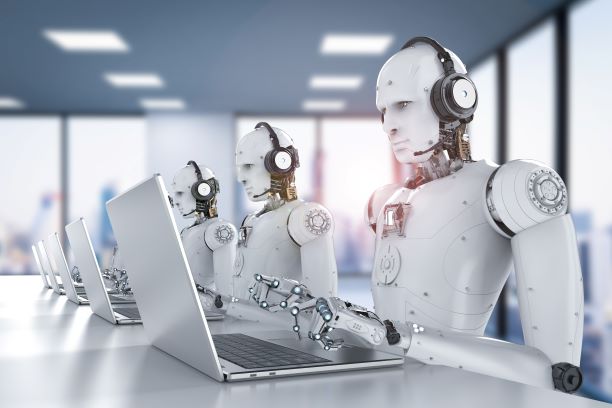Artificial Intelligence systems have been revolutionising customer service and relationship management systems for a few years now and it is not slowing down.
AI automates many of the processes that were once operated solely by people. Some may see this as a negative thing. But, in reality, it has helped reduced the workload of many members of a stressed out workforce. Not only that, AI can often perform tasks more quickly and accurately than its human counterpart.
AI can deliver a smarter and more personalised experience for customers, but human input is still required. In other words your AI is only as good as the way you develop and train it. AI may run on all the data but it still needs human input at the front and end of it to actively train it to get smarter.
People are not losing their jobs to AI, it is more a question of adjusting to new roles. In the future we may find ourselves working together with AI and managing robots.
Changing The Face of Customer Service
According to artificial intelligence company SAS “Companies are using AI to gain real-time insight into consumer spending habits and interests across multiple platforms. This in turn means that the customer gains a more personalised experienced when shopping for goods and services.”
Targeted ads, personalised emails and relevant gifts and offers are readily available thanks to the big data collected through an AI system.
Call wait times are greatly reduced as AI can optimise an agent’s availability. This produces a more proactive customer service experience and is far less frustrating for the customer.
The AI technology can also inform field agents on the expectations and wants of their customers. Working together with people to further enhance the personalised customer experience.
Changing The Way Businesses Respond To Customer Queries
Traditionally a client/customer will call the customer services department and wait in line until an operative becomes available. This is because a service agent can only really deal with one customer at a time. AI helps the customer service departments to streamline this process.
For example, a chatbot can handle multiple queries at once. It can answer a multitude of queries itself, but if it is too complex a problem, the chatbot will ask a live representative to step in and help.
Not only that, but the AI intelligence utilises the data it has gained to identify which agent is available and will best serve the customer’s needs. The agent will then be given any background information that the chatbot has gathered before it speaks to the customer. Thus cutting down on the length of time required to address the issue.
A customer service chatbot will ideally have access to the customer’s account information. So if a customer is calling to find out where their delivery is, for example, the chatbot would be able to handle that enquiry.
One of the concerns is that customers will not be happy speaking with a chatbot. But, if they are getting their questions answered more quickly and accurately, are they really going to mind?
In Conclusion
Artificial Intelligence in customer service has helped customers feel more connected to the company they are contacting. Instead of having to go through multiple menu options, pressing numbers, they can now ask their questions immediately.
If necessary an agent will be made available to them either with a call back or by being connected directly. Either way, the customer wait time is practically gone and the overall experience is dramatically improved.
In this age of people wanting a more personalised service and experience companies are needing to use AI to gather the relevant information.
Using a CRM system that is AI enhanced enables your employees to spend more time on tasks that can grow your company. Plus, your customers will spend less time being frustrated waiting in line for an answer to their query, meaning they are more likely to shop with you again.
Comments are closed.




















































